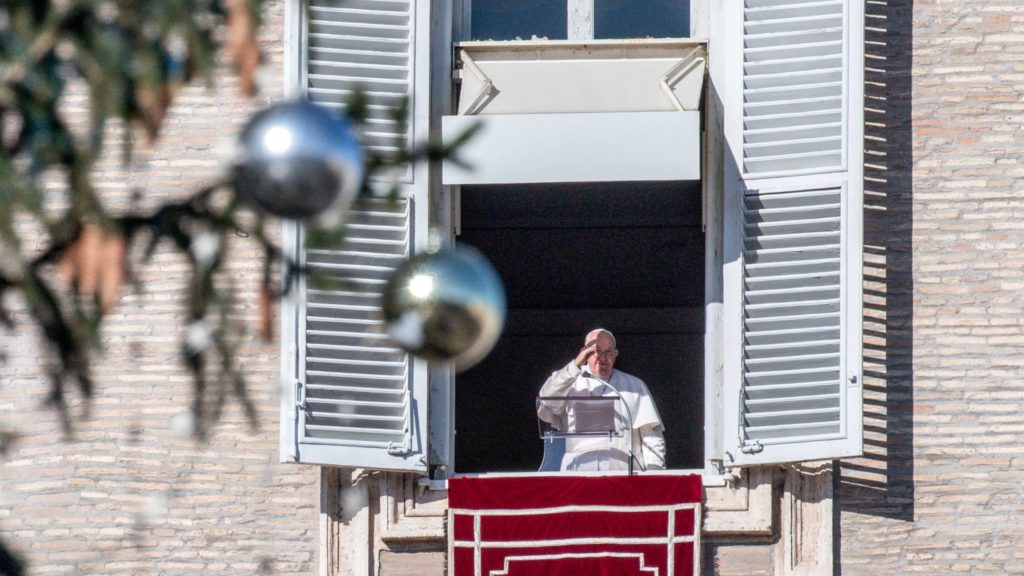To connect with God, Christians must disconnect from the "pollution of vain words and chatter" that reach them through social media and instead seek silence in the desert, Pope Francis said.
The desert is "the place of silence and essentials, where someone cannot afford to dwell on useless things, but needs to concentrate on what is indispensable in order to live," the pope said before praying the Angelus from his studio overlooking St. Peter's Square Dec. 10.
Reflecting on the day's Gospel reading from St. Mark, in which St. John the Baptist is described as "a voice of one crying out in the desert," the pope said that the saint's decision to preach in the desert is a reminder of the need to be "freed from the superfluous, to dig deeply within ourselves so as to hold on to what is truly important before God."
"Silence and sobriety -- from words, from using things, from media and from social media" -- are not just sacrifices offered to God, he said, but "essential elements of Christian life."
Pope Francis said that the power of St. John's preaching is linked to the silence he experienced in the desert, which allowed him to listen to the Holy Spirit.
"If someone does not know how to be quiet, it is unlikely they will have something good to say, while the more attentive the silence, the stronger the word," he said.
After praying the Angelus with some 25,000 visitors in St. Peter's Square, Pope Francis praised the release of Armenian and Azerbaijani prisoners and expressed hope that peace will soon be achieved in the Southern Caucasus. An Azerbaijani military offensive in September ended a decades-long conflict in the Nagorno-Karabkh region of Azerbaijan, where thousands of ethnic Armenians live. In a joint statement published Dec. 7, Armenia and Azerbaijan agreed to release 34 military servicemen held in custody and expressed their desire to reach a peace treaty.
Pope Francis also asked that as Christmas approaches, concrete steps toward peace be taken to alleviate the pain of those suffering due to war.
"It is not easy; we know that. Certain conflicts have historically deep roots," he said. Yet the pope asked that "every effort be put toward addressing and removing the causes of conflict" while also "protecting civilians, hospitals, places of worship, freeing hostages and guaranteeing human rights."
"Let us not forget battered Ukraine, Palestine, Israel," he said.

